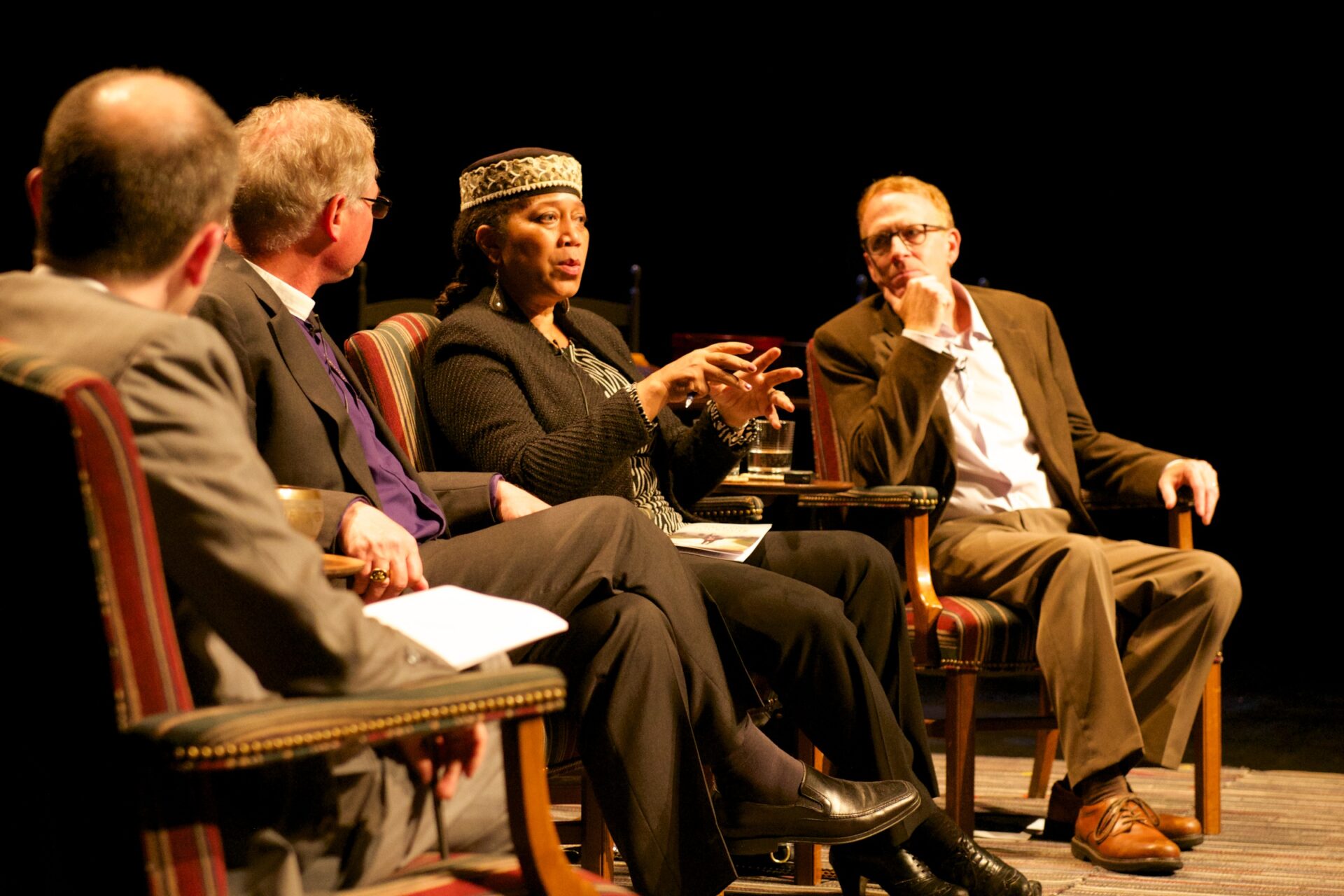by Dana Hatic
Inspiration for contemplation—whether in the form of music, moral and ethical issues, or social discord—sets a course for solitude, but that solitude can serve as a seed for action.
Allowing stillness and inviting contemplation opens up internal space to allow an individual to receive and respond to the world, and to act within it.
“There’s more than a hint of miraculous—what I might call the possibility of presence,” said Dr. Christopher Pramuk of Xavier University, during Thursday’s exploration of contemplation and action. Enduring life’s moments of dryness and continuing contemplation in solitude can enable an individual to return to the public sphere with renewed humanity.
Yet modern social discourse in that public sphere increasingly extends beyond the physical to the digital.
Thomas Merton wondered whether contemplation had a place in such a technological world—one that invites discussion, but generates a broad flow of information and perhaps, at times, challenges the concept of solitude.
What need do we have for contemplation in the face of such vast information, when the need to know and the need to be right trumps the need to listen?
“Contemplation calls us back to the difficult work of work,” Pramuk said. “It is a check on the ego and the ego’s aggressiveness,” as well as an attempt to recover humanity.
Taking the time to consider the self in relation to humanity can carry contemplation from a space of solitude to a one of interaction and justice.
Rt. Rev. Marc Andrus, Bishop of the Episcopal Diocese of California, addressed the unity of contemplation and action.
He spoke of Dr. Martin Luther King Jr. and the collective work of individuals behind the civil rights movement.
“Their common commitment to justice and the contemplative life,” he said, led to an interconnectedness and interrelationship in their action.
Reaching a common space conducive to strategic action, Andrus said, involves making peace with your inner being, with silence, and with work; and making peace with the other.
Ambassador Attallah Shabazz, a diplomat, writer, producer, and – as she describes herself – a “multiple,” echoed this point.
“In the contemplation, they know that the end result requires united action,” she said.
Shabazz’s father, El-Hajj Malik El-Shabazz, also known as Malcolm X, became a representative of action in his life and during the civil rights movement.
“It was all strategic action. It was all contemplated,” she said.
Shabazz said her parents and grandparents encouraged ecumenical experiences. She was born a Muslim, attended parochial school, and ate with Jewish kids on Fridays and Saturdays, without considering these actions odd.
“It all depends on what you introduce to a child,” she said. “My parents never told me who a united enemy was.”
She herself was a multiple: not a certain percent African American or Muslim or Egyptian, but rather 100 percent of all those things.
“Give each one 100 percent value so you’re walking with your multiple,” she said. Contemplate the multiple, find commonality with others of different traditions, and approach action with strategy.
